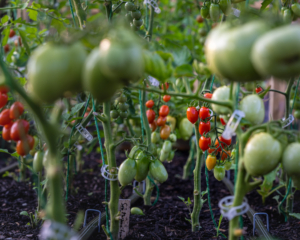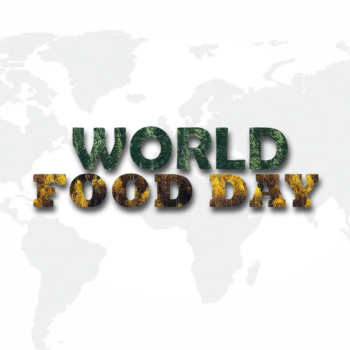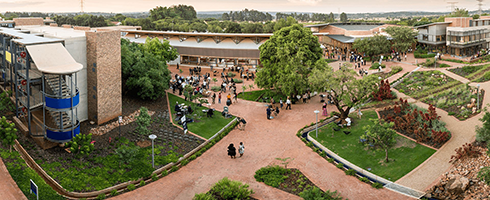You are here: Home1 / Challenge Domains2 / Sustainability Transformations in Africa3 / The Tomato Paradox: When abundance meets shortage in Africa’s food sys...
The Tomato Paradox: When abundance meets shortage in Africa’s food systems
To mark World Food Day 2025, Future Africa spotlights reflections from Dr Ololade Latifat Abdulrahman, a Research Fellow in the Future Africa Research Leadership Fellowship (FAR-LeaF) programme. In her article, The Tomato Paradox, Dr Abdulrahman examines one of Nigeria’s most striking agricultural contradictions: the country produces 1.8 million metric tons of tomatoes each year but imports more than 1.3 million tons of paste, while nearly 40% of locally grown tomatoes are lost between harvest and market.
This paradox, she explains, is not due to low productivity but rather weak value chains and inadequate infrastructure. Farmers face major challenges, from limited access to cold storage and processing plants to insufficient rural transport and irrigation systems. The result is both economic loss and food insecurity, an abundance that never reaches consumers.
Dr Abdulrahman argues that the solution lies in a holistic transformation of the agrifood system. This includes investing in climate-resilient seeds, expanding access to irrigation, improving post-harvest logistics, and developing processing hubs near production areas. She also calls for stronger collaboration among researchers, policymakers, and the private sector to ensure that innovation reaches smallholder farmers and strengthens rural livelihoods.
Her message for World Food Day is clear: “Every wasted tomato is a lost opportunity to nourish a family.” Rebuilding food systems where abundance meets access is key to ensuring better foods and better futures across Africa.
Read the full article HERE
About the author:
Dr Ololade Latifat Abdulrahman is a Research Fellow in the second Future Africa Research Leadership Fellowship (FAR-LeaF) programme, hosted by the University of Pretoria’s Future Africa platform. READ MORE about her research





